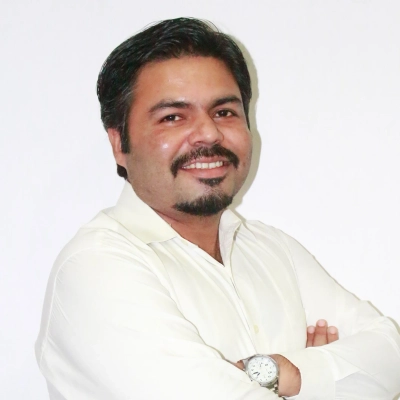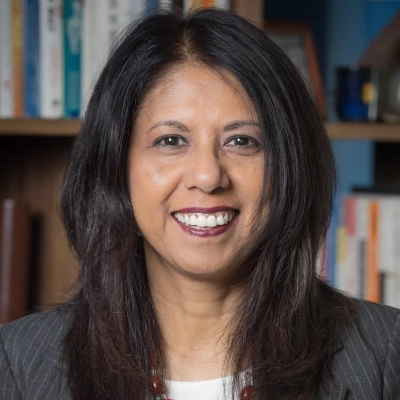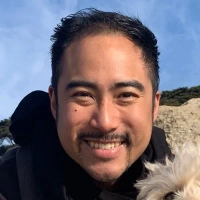How Building Strong Relationships Leads to Success as An HR Consultant
In the dynamic world of HR consulting, building strong relationships is key to success. This article delves into the strategies that can help HR consultants thrive in their careers. Drawing on insights from industry experts, it explores practical approaches to personal growth, networking, and staying ahead in a rapidly evolving field.
- Embrace Constant Growth for Client Value
- Reflect and Network for Fresh Perspectives
- Set Aside Time for Sector Deep-Dives
- Leverage Client Engagements as Learning Opportunities
- Seek Hands-On Experience with Emerging Technologies
- Push Beyond Comfort Zones for Rapid Development
Embrace Constant Growth for Client Value
Consulting isn't about what you knew yesterday; it's about what you're learning today to prepare for tomorrow. That's why I make growth a constant priority. Clients don't hire us for recycled insights or dated frameworks. They expect clarity, relevance, and perspective they can't find on their own. My responsibility is to keep learning so I can keep serving.
I start with clarity on my professional goals, and those always include growth goals. It's not just about where I want to take my practice; it's about how I want to stretch myself so I can bring more value to my clients. That clarity becomes the anchor for how I learn.
From there, I scan constantly. I read widely across leadership, business, and education, but I also watch for early signals in conversations with peers and friends. Often, trends show up in networks long before they hit the headlines.
Networking plays a critical role. Roundtables, consortiums, and candid peer dialogue stretch my perspective and challenge assumptions. Some of the most valuable insights don't come from books but from leaders dealing with real-time challenges.
Another essential part of my growth is having my own coach. Working with someone who challenges me, pushes me to reflect, and holds me accountable reminds me of the vulnerability it takes to grow. That experience makes me a better coach and consultant because I know firsthand what it feels like to be stretched.
And here's something I've discovered again and again: coaching and mentoring others is one of the best ways to keep learning myself. Every conversation forces me to listen deeply, ask sharper questions, and translate frameworks into real-world solutions. In serving others, I gain insights into my own practice.
"Every time I mentor, I'm not just giving, I'm sharpening."
What motivates me to keep learning is simple: my clients deserve it. In consulting, your edge comes from staying curious. If I stop learning, I stop serving, and my clients would know it instantly.

Reflect and Network for Fresh Perspectives
One thing I've always done at Spectup is carve out time for active reflection after every project. After a client meeting or fundraising session, I'll spend a few minutes jotting down what went well, what felt off, and what I could approach differently next time. It's not formal, just a notebook habit, but over months it becomes a map of lessons and patterns you can actually use.
I also make a point to engage with founders outside my immediate projects. Seeing how others pitch, structure their teams, or handle growth challenges gives me fresh perspectives. What keeps me motivated is the sense that the next insight could change the outcome for a startup entirely.
I remember one pitch deck where a tiny tweak in the story made investors sit up and ask better questions. It was exhilarating. Learning isn't just academic for me; it's practical and often immediate. That mix of curiosity and the tangible impact on a company's future is what keeps me diving in, even when the workload is heavy.

Set Aside Time for Sector Deep-Dives
I view consulting as a discipline of lifelong curiosity. I deliberately set aside time each week to deep-dive into new sectors, study disruptive business models, and reflect on client engagements to extract learnings. What fuels this habit is the knowledge that my advice directly influences client growth and strategy. That responsibility motivates me to never stop learning, so I can bring fresh thinking and future-ready solutions to the table.

Leverage Client Engagements as Learning Opportunities
One thing I do to continuously improve my skills and knowledge as a management consultant is to listen, explore, and reflect on the new things I encounter. I make it a priority to attend professional development workshops and networking events. Additionally, I leverage every client engagement as an opportunity to learn. New ideas and new challenges are exciting.
What motivates me to keep learning comes from how learning new things is fun and makes me feel great. I like to learn and seek to know more today than I did yesterday. Beyond my own personal satisfaction, my company and I are on a mission to craft sustainable organizations. We are mission-driven, and knowledge is the key to helping others build better, more sustainable organizations. Markets shift, technologies advance, and client needs change. Staying ahead of these trends is essential for providing relevant, actionable guidance.

Seek Hands-On Experience with Emerging Technologies
Continuous learning is the greatest competitive advantage for professionals in a world that is constantly changing. Every 5-10 years, something new reshapes how we work—computers, the internet, social media, remote work during the COVID-19 pandemic, and now AI.
My tech background prepared me well for this. At Microsoft, we worked with new tools long before they were released. Success wasn't about avoiding issues—it was about spotting them early, experimenting, and adapting. That agile mindset has not only shaped my career but also influenced how I coach leaders today.
To stay sharp, I deliberately seek opportunities to learn through hands-on experiences. I often take on pro bono or low-bono projects that let me test new ideas in real-world contexts. For example, as a nonprofit leader, I've tried new ways to expand services, engage volunteers, and extend our reach. These experiences provide me with fresh insights that I can bring back to my executive clients.
Right now, I'm experimenting with AI. Some fear it will replace human skills. I choose curiosity over fear. By engaging directly with AI, I gain a deeper understanding of the challenges and opportunities my clients face as they navigate their organizations through disruptive change.
What motivates me is simple: I want to experience what my clients experience. By stepping into new and uncertain territory myself, I stay connected to the discomfort of change—and to the growth it unlocks.
In learning, I don't always know what the outcome will be. But I do know this: change is the only constant. The more we embrace discomfort, the better equipped we are to lead from the forefront of change.

Push Beyond Comfort Zones for Rapid Development
One strategy I employ for continuous improvement isn't about consuming more books or enrolling in additional courses—it's deliberately placing myself in situations where I know I'll be out of my depth. For instance, I'll take on projects that feel slightly beyond my current abilities, or I'll immerse myself in industries I know very little about and attempt to understand them quickly. It's akin to controlled drowning: uncomfortable, but it forces rapid development of new skills.
What motivates me to persist with this approach is a curious paradox I've observed: the more senior you become, the easier it is to coast. People defer to your title, experience, and past successes. However, this can be dangerous. Comfort creates blind spots. Therefore, I treat discomfort as a compass—if I'm too at ease, it likely means I've ceased growing.
That constant edge of unease is what keeps me sharp. And it yields dividends: when you practice learning under pressure, you become quicker at pattern recognition, develop a sense of calm amidst chaos, and learn how to guide your team through similar turbulence.


